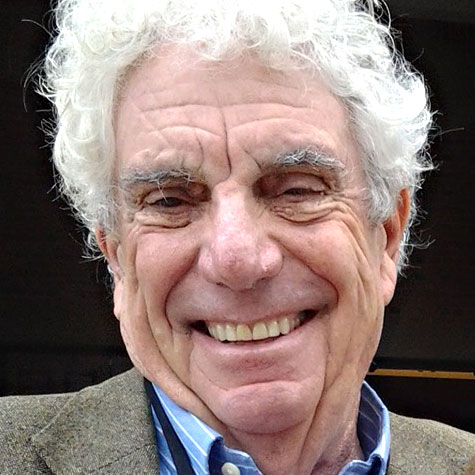The crowd in front of the Jewish Republicans’ booth didn’t approach the size of those at some of the better food stands at the Israel’s Independence Day celebration at Woodley Park in the San Fernando Valley. Still, it was big enough to interest me after having watched the GOP’s long courtship of Jews; for years, it’s been a romance that sometimes reached the engagement party but usually fell short of the chuppah.
Barbara Rosenthal of Northridge and Sharlene Basch of Westlake Village were among those working at the booth. Basch looked at my card skeptically. The name, she said, is familiar. When I told her I used to write for the Los Angeles Times, she launched an attack on the paper for being left wing. No longer employed there, I let her words wash over my head like gentle surf, relieved that I wasn’t obligated to defend the place from every assault.
Rosenthal told me, “Many people have come up to this booth and asked to have their registration changed [to Republican].”
Whether she is onto a trend will depend on whether the Republicans’ latest effort works. The campaign is expected to be substantial. Adam Clymer reported in The New York Times on May 25 that the Republicans have launched an intense, new effort to target traditional Democratic constituencies such as Latinos, African Americans, union members and Jews.
In Los Angeles, the Republicans will undoubtedly focus on the San Fernando Valley. Jews there have traditionally been more conservative than those on the Westside; a trend that continued in the last mayoral election when Valley Jews backed Jim Hahn, while the Westside Jewish community went for Antonio Villaraigosa, a liberal Latino who was backed by labor and talked about economic and social justice. A Los Angeles Times Poll showed that Villaraigosa carried the Westside among Jews 53 percent to 46 percent, while Hahn won among Valley Jews 57 percent to 43 percent.
Social and economic justice are code words for liberal social engineering, which has never gone over well in the Valley.
I can’t forget meeting the women who started Bustop more than a quarter of a century ago to stop mandatory busing, designed to desegregate Los Angeles public schools. Many of them were Democrats whose children attended Lanai Road Elementary School. They were raised in New Deal households. But the idea of having their kids bused away from their neighborhood angered them and estranged them from liberal Jewish leaders who supported the busing plan.
The liberals attacked them as racists, but as I attended their meetings and interviewed them, I saw the issue was much more complicated than that. It went to the very heart of the Southern California dream — a suburban home, a backyard and a neighborhood school that kids can walk to.
I talked to Arnold Steinberg, a writer and political strategist, who advised Bustop and organized a campaign that elected five members to the Los Angeles Board of Education, including Bustop leaders Bobbi Fiedler and Roberta Weintraub.
“Some new people came into the conservative movement through busing, so there were numerous people who were in the civil rights movement, who just thought busing was awful,” he said.
Steinberg grew up in the Fairfax district when it was a cauldron of Democratic partisan politics. He survived “people calling you names and so on” while campaigning for Barry Goldwater for president on the streets of Fairfax. He moved East, worked for Sen. Jim Buckley (R-N.Y.) and became part of a conservative movement that eventually became a dominant force in American politics.
“Regardless of the rank-and-file Jewish participation in conservative politics, they have always been represented in the leadership disproportionately,” he said.
Steinberg saw that the ideas espoused by these leaders could resonate with a Jewish rank and file to whom the New Deal was an increasingly distant memory.
There have been milestones in L.A. Jews’ drift away from liberalism. An important event was Proposition 13, the 1978 property tax cut measure, which had its roots in the San Fernando Valley. “The Federation opposed it, but there was another side of the community who owned homes and who were seniors,” Steinberg said. Another milestone was Fiedler’s defeat of liberal Democratic incumbent Rep. Jim Corman in the East Valley, then the home of many Jews with working-class roots.
Having seen a promising Jews for Nixon movement evaporate after Watergate, Steinberg hesitates to make predictions. There is, he said “an incremental change, an evolutionary change.”
That evolution has more to do with foreign policy than local politics. Barring a deep recession, Israel will suck up the Jewish community’s energies during these next crucial months. I could see that at a booth at the Israel Independence Day celebration run by Democratic Jews strongly supporting Israel. I talked to attorney Paul Kujawsky of Studio City, a Democrat. He recognizes the Republican potential in the Valley, especially among Russian, Persian and Israeli immigrants who see the Republicans “as being more realistic” about events overseas.
That is why Kujawsky believes in a “Democratic Party with a muscular foreign policy.”
My common sense told me he was right. Looking around at the many booths filled with advocates for a strong stand for Israel — and no doubt in the rest of the Mideast — I felt that Kujawsky knows the Jewish Valley as well as any Republican.
Bill Boyarsky’s column on Jews and civic life will appear in this space the first Friday of each month. Until leaving the Los Angeles Times in 2001, Boyarsky worked as a political correspondent, a metro columnist for nine years and as city editor for three years.
You can reach him at bw.boyarsky@verizon.net.






















 More news and opinions than at a Shabbat dinner, right in your inbox.
More news and opinions than at a Shabbat dinner, right in your inbox.